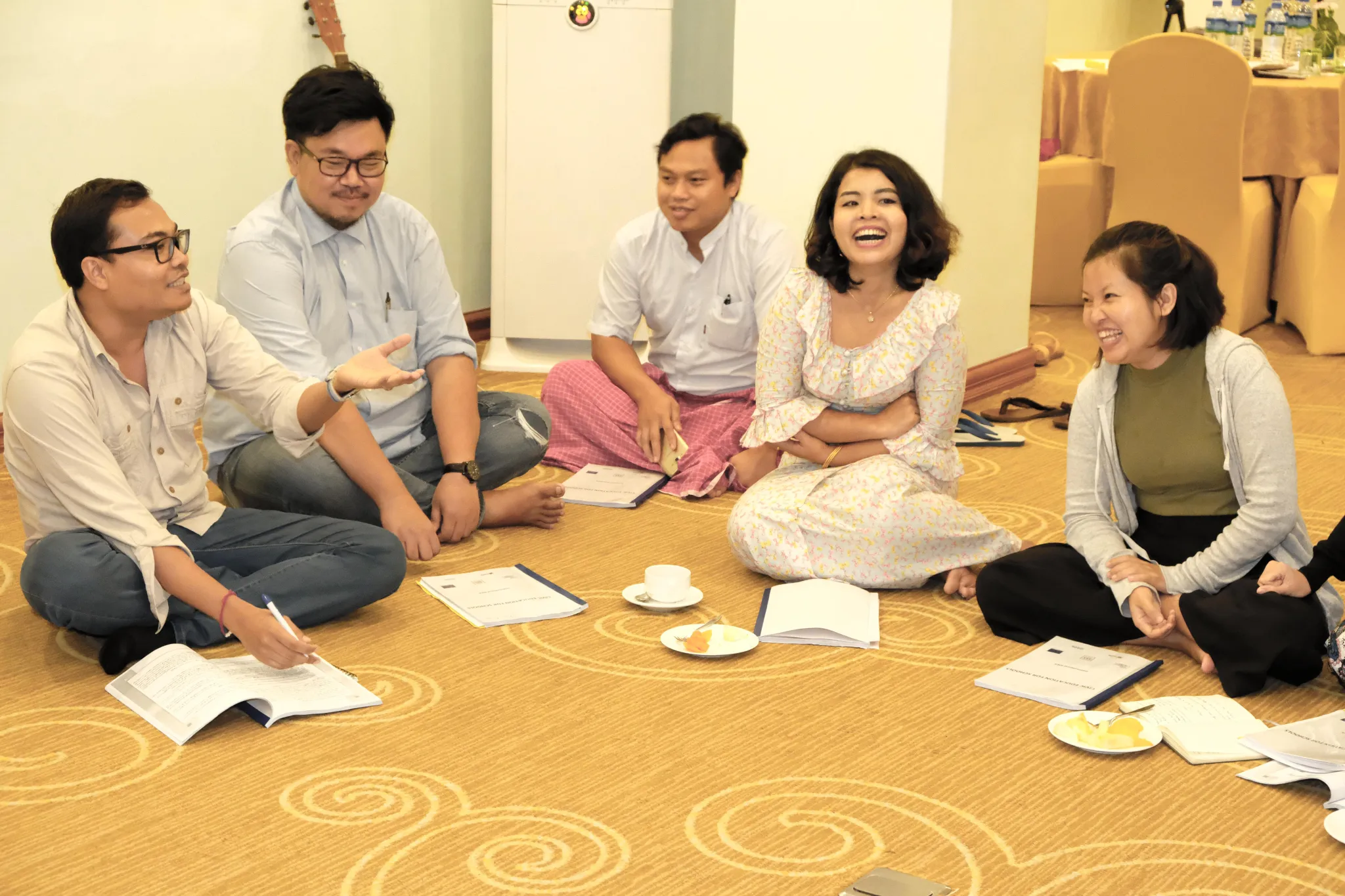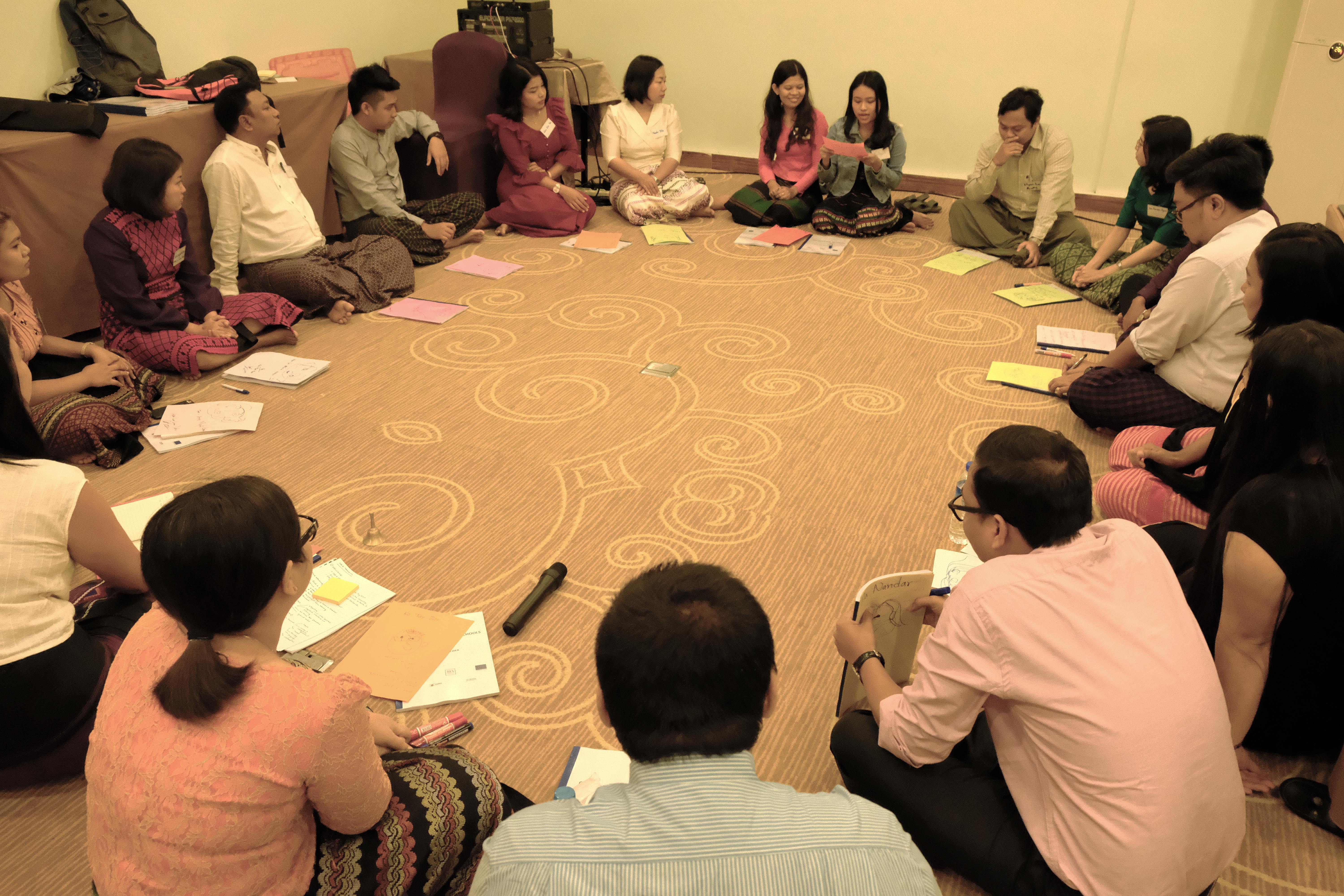International IDEA trains future leaders of civic education in Myanmar

In order to ensure that young people are given the knowledge needed to participate in their democratic surroundings from an early age, International IDEA and its two national partners, Scholar Institute and Paññā Institute, are working on the development and implementation of a civic education curriculum geared towards students from ages 13-16 through the EU funded STEP Democracy programme.

The nine-hour curriculum introduces democracy and explores notions of diversity, leadership, elections, equality, and democratic rights and responsibilities to name a few. The curriculum was developed over the first half of 2019 with a Training of Trainers (ToT) taking place from 19-21 June in order to ensure that teachers from partner schools are able to successfully implement the work.
“The reason why I would like to participate in this programme (civic education in schools) is that I have been working as a civic educator delivering civic and voter education trainings, but those trainings are for adults. In our country, we need to learn this kind of content from a young age. I mean most people in this country do not know the basic principles of politics. But now the political situation in the country is changing. So I expect that if young people and students can learn politics, they can create a better, more open society in the future,” said Nyan Lynn Aung, project coordinator of Paññā Institute at the civic education in schools ToT.

“The lessons about democracy included in the curriculum are quite meaningful and this ToT taught me how essential they are for students. For example, the basic principles of democracy and human rights – those are very important,” said Linn Zaw, a teacher from Htark Mrak Tun Private High School in Sittwe, Rakhine State, after attending the civic education in schools TOT. Although the initial roll out phase will begin with private schools in Ayawaddy Region and Rakhine State, it will be more widely implemented in the second year of the STEP Democracy programme.

“We hope that this programme will allow young people to learn about, and explore, democratic values and practices which they can then share with their families and communities as well as preparing them to become engaged in their democratic processes – including as future voters,” said STEP Democracy’s programme manager Shana Kaiser.





